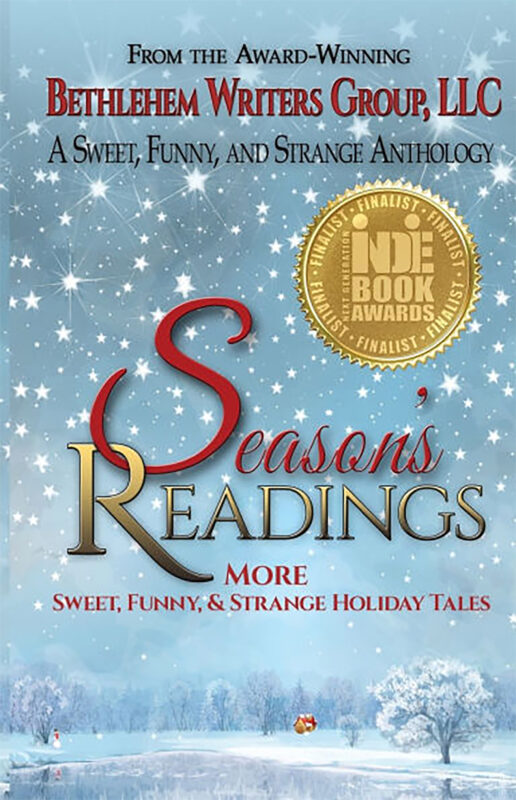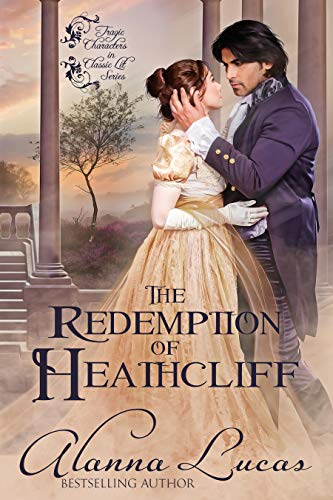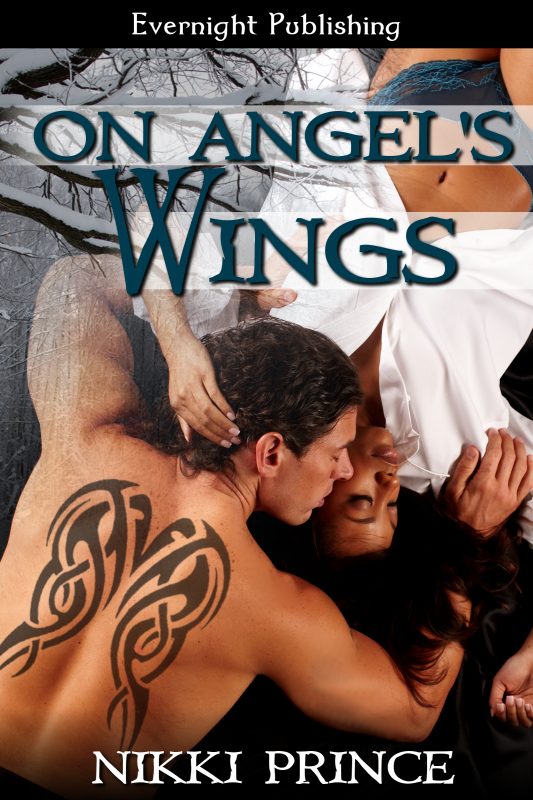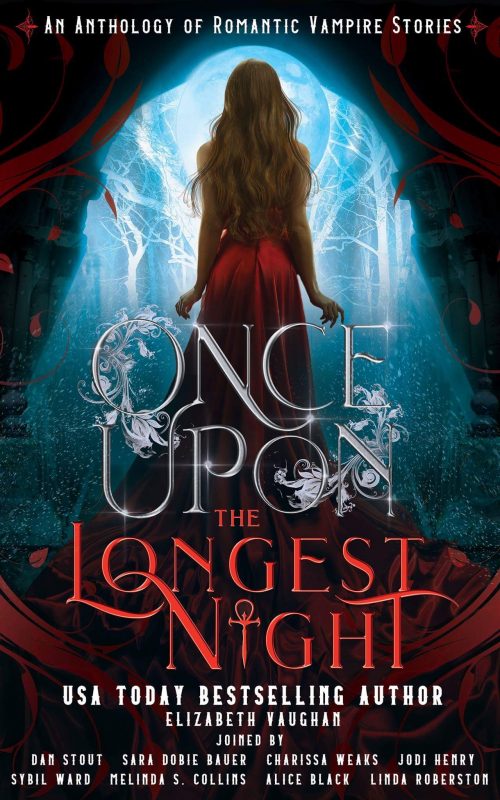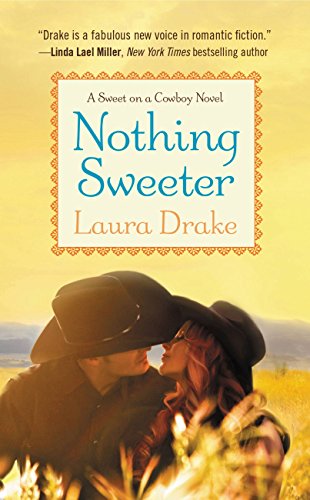Isn’t It Bromantic–A Review
April 24, 2021 by marianne h donley in category Apples & Oranges by Marianne H. Donley, Book Reviews tagged as humor, Isn't It Bormantic, Lyssa Kay Adams, romantic comedy, The Bromance Book Club, Vlad and Elena
Isn’t it Bromantic
Bromance Book Club 4
Lyssa Kay Adams
Berkley
Available July 20, 2021
978-0593332771
With his passion for romance novels, it was only a matter of time before Vlad wrote one.
Buy Links
About the Book
Elena Konnikova has lived her entire adult life in the shadows. As the daughter of a Russian journalist who mysteriously disappeared, she escaped danger the only way she knew how: She married her childhood friend, Vladimir, and moved to the United States, where he is a professional hockey player in Nashville.
Vlad, aka the Russian, thought he could be content with his marriage of convenience. But it’s become too difficult to continue in a one-sided relationship. He joined the Bromance Book Club to learn how to make his wife love him, but all he’s learned is that he deserves more. He’s ready to create his own sweeping romance—both on and off the page.
The bros are unwilling to let Vlad forgo true love—and this time they’re not operating solo. They join forces with Vlad’s neighbors, a group of meddling widows who call themselves the Loners. But just when things finally look promising, Elena’s past life intrudes and their happily ever after is cast into doubt.
About the Author

Lyssa Kay Adams is an award-winning journalist who gave up the world of true stories to pen all-the-feels romances featuring sexy heroes and women who always get the last word. Lyssa lives in Michigan with her family and an anxiety-ridden Maltese who steals food and buries it around the house and who will undoubtedly be a character in a future book. Keep up with Lyssa on Twitter at @LyssaKayAdams.
Review
It’s no secret that I have enjoyed all of Lyssa Kay Adams’ book, but I especially love her Bromance Book Club series. They are laugh out loud funny, yet they manage to include complex subjects like failed marriages, sexual harassment, and family secrets. Isn’t It Bromantic is no exception.
Elena and Vlad have a modern marriage of convenience. She wants out and he wants a genuine marriage—what could go wrong?
Elena is wounded but strong. She’s used to being overlooked and ignored. While she’s convinced she doesn’t deserve Vlad, she doesn’t let anyone—not even Vlad walk all over her.
Vlad (also known as the Russian), may be my favorite character in the entire series. He’s just adorable, and he’s writing a romance novel! (I may have cheered when I read the tagline for the book: With his passion for romance novels, it was only a matter of time before Vlad wrote one.) This man seriously believes in romance, and he’s determined to have one of his own.
The Book Club bros, meddling neighbors, and a dog and cat who just show up every day for Vlad’s attention add to the humor. And seriously, the Cheese Man had better get his own book.
Isn’t It Bromantic is smart, heartfelt, and hysterical. You will laugh and cry—sometimes in the same scene. Lyssa hit a grand slam with the fourth installment of her series.
Available July 20, 2021, you can order Isn’t It Bromantic using one of the following Buy Links:
Calling Published Romance Authors
April 23, 2021 by marianne h donley in category Contests, Published Contest tagged as 2021 BBB Contest, OCC/RWA, occ/rwa BBB Contest, The Book Buyers Best Contest
2021 BOOK BUYERS BEST
CONTEST FOR PUBLISHED AUTHORS
Deadline is April 30, 2021
The OCCRWA is running its annual Book Buyers Best Contest for traditional or indie romances in print or e-novel format published during 2020.
Non-refundable entry fee: $30, RWA members; $50, non-RWA.
The contest is open now and closes on April 30, 2021. We invite you to submit to our contest (and tell your non-RWA writer friends about it, too!).
Even if you’re not entering one of your books into the contest, you’re invited to be one of our judges. It’s a fun experience to be introduced to the writing of published authors you don’t know (see link below).
Follow this link to learn about contest categories rules, entry form and fee, past winners, and call for judges
Thanks, Nancy Brashear and Cathleen Armstrong, BBB Coordinators
Go here for BBB Categories and Rules
Go here for BBB Entry Form and Fee Payment
Go here for BBB Past Winners
Go here for Judge Sign-Up
Go here to Contact BBB Contest Coordinator
Please contact OCC/RWA BBB Coordinators, Cathleen Armstrong and Nancy Brashear, at bbbcontest@occrwa.org
Orange County Chapter/Romance Writers of America®
0 0 Read moreHow’d I Miss That?
April 18, 2021 by marianne h donley in category Ages 2 Perfection Online Class, Online Classes tagged as A2P, A2P Online Class, Kathryn Jane, Self-editing, self-publishing
“How’d I Miss That?” (Self-Editing)
Presented by: Kathryn Jane
Date: May 1 – 31, 2021
Pricing: A2P Member fee: $15
Non-A2P Member fee: $30
About the Workshop:
Sending to a contest? Sending to an agent? Sending to an editor? Self-publishing?
No matter where your words and pages are headed, they need to be the best they can possibly be, and that means self-editing. Yep, the initial cleanup is your job and that’s why self-editing skills are so darned important.
This workshop will provide you with all the tips and tricks I wish someone had shared with me.
About the Presenter:
Kathryn Jane, author, artist, and coach, loves to share her knowledge and experience in workshops designed to assist others in every stage of their publishing adventure. Her own career has included everything from short stories and novels, to multi-book series. Whether romantic suspense or the escapades of feral cats, Kathryn’s unique voice will take you on a journey rich with pitfalls on the way to the always promised happy ending.
Novellas and How to Knock ‘Em Out Fast
April 18, 2021 by marianne h donley in category Ages 2 Perfection Online Class, Online Classes tagged as A2P, A2P Online Class, fast drafting, Ivy Quinn, Novellas
Novellas and How to Knock ‘Em Out Fast
Presented by: Ivy Quinn
Date: May 1 – 31, 2021
Pricing: A2P Member fee: $15
Non-A2P Member fee: $30
About the Workshop:
This month-long workshop will show you how to quickly write the first draft of novellas — 30-40K word stories in 7-10 days.
Learn how to understand your writing schedule and the best times for writing, tricks for concentrating, how to outline, and strategies for getting it done and making sure you get through a novella when other things are pressing on you and responsibilities clash with your writing.
About the Presenter:
Ivy Quinn has written the novel Frozen Ashes and Smoldering Shards with her co-writer, Midnight Voss. The book was part of the USA Today bestselling Sirens and Scales boxset in 2018 and is currently being revamped and expanded into a longer work.
She also co-wrote the novella, The Golden Stag, the first in her Jaeger Detective Agency paranormal noir books with Megan Hussey. That novella was published in the limited edition and also USA Today Bestselling Once Upon a Rebel Fairy Tale anthology set last summer. She worked as a ghostwriter for four years on over sixty novellas and a dozen novels, some Amazon bestsellers.
She’s also taught workshops, including one on novella writing and one on adapting fanfiction ethically into original works, for a variety of RWA chapters, including the Maryland Romance Writers, the Central Pennsylvania Romance Writers, the Young Adult Romance Writers, and the Yosemite Chapter of the RWA.
Currently, she (usually) balances her graduate schoolwork in psychology with her writing schedule, which includes the Fanged Fairy Tales series, the Vegas Shifters series, and more of the Jaeger Detective Agency novellas currently in development for Sapphic Alliance Fiction.
The Walls of Orion Book Tour and Excerpt
April 17, 2021 by marianne h donley in category Apples & Oranges by Marianne H. Donley, Rabt Book Tours tagged as #urbanfantasy, #youngadult, @RABTBookTours, @tdfoxauthor, debut, indieauthor
Date Published: April 13, 2021
Publisher: Acorn Publishing
Orion City has been on lockdown for ten years. Courtney Spencer, a disillusioned barista doomed to live a “normal” life in a quarantined fishbowl, is certain she’ll never see over the Wall again.
Until one rainy evening, Courtney unintentionally befriends W, an eccentric customer who leaves a switchblade in the tip jar. The unexpected acquaintance soon opens the door to a frightening string of questions that flips everything she knows upside down. Stumbling into a world of secrets, lies, and disturbing truths, Courtney grapples with a burning temptation to look again at the Wall. Surrounded by citizens trained to ignore its looming shadow, Courtney no longer can.
Intrigued and terrified to expand her world, Courtney finds herself toeing a knife’s edge between the law and justice, learning quickly that the two are not always compatible. She wants to cling to her morals. She also wants to stay alive. But most of all, she wants to see a certain customer again, despite everything in her whispering W is dangerous.
In a gritty urban clash of hope and fear, passion and survival, The Walls of Orion explores the edges of light, dark, and the gray in between.
About the Author
A world-romper from the Pacific Northwest who quite enjoys the label “crazy,” T.D. Fox supplements a hyperactive imagination with real life shenanigans to add pizzazz to her storytelling endeavors.
Armed with a bachelor’s degree in Intercultural Studies, her favorite stories to write usually involve a clash of worldviews, an unflinching reevaluation of one’s own internal compass, and an embrace of the compelling unease that arises when vastly different worlds collide.
When not recklessly exploring inner-city alleyways during midnight thunderstorms in the States, she can be found exploring rainforests without enough bug spray somewhere along the equator.
Contact Links
Facebook: T.D. Fox
Twitter: @TDFoxAuthor
Instagram: @TDFoxAuthor
Purchase Link
Excerpt
The Walls of Orion
T. D. Fox
“Hey,” she called again. “We’re closed. I’m going to have to ask you to leave.”
He didn’t make any sign that he’d heard. Courtney took another step forward. A deck of cards lay scattered over the table, white faces sharp and crisp in the shadow. At first she thought he was playing solitaire, but she noticed half the cards appeared to be cut in half. Diagonal slashes from corner to corner, oblong triangles and half grinning faces of Jacks and Queens.
“You’re bored.”
Courtney blinked at the soft voice. “Sorry?”
W didn’t look up, just took a handful of half-cards in his hands and shuffled. She was impressed he could do so with such deft precision, given the weird shapes.
“Bor-ed. You know, weary, restless, your little world holds nothing of interest. The repetition, the grind, marching toward that same paycheck every week. You’re over it.”
She stared at the mangled cards. “What are you—”
“Wake up. Eat cereal. Work your tail off for eight dollars in tips. Come home to an empty hole in the wall. Pass out and repeat. Sound familiar?”
Something prickled at the back of her neck. He flipped a card onto the table. A three of hearts, with two of the hearts cut out.
“I really have to close up,” she tried again.
W looked up then. Leaning forward, he laced his fingers under his chin and peered up at her. “Got somewhere to be?”
She opened her mouth, but a picture of her silent apartment filled her mind. Shadows slinking through the tiny space, the stars in the window blacked out behind the Wall. The breath slid out of her lungs without a sound.
W motioned to the bench across from him. Without really deciding, Courtney found herself moving. She sank into the booth. Just for a minute. Her knees ached from standing all day. All week.
“Two minutes.” She nodded at the cards. “What are you playing?”
“It’s called Life.” He glanced up at her. “Wanna learn?”
“Does it work with all those broken cards?”
W laughed. “Darlin’, it only works with broken cards.”
He started dealing. As she watched, a little voice in the back of her mind asked what the hell she was doing. He explained the rules of the game, and she found herself distracted by the way his face changed as he spoke. He was a very expressive person. But nothing quite seemed to touch his eyes. Frowns, smiles, laughs. Those pale eyes stayed the same. At first she’d thought they were gray, but now she could see a faint swirl of color inside them. She couldn’t decide if it was icy blue or green.
In this light, he looked younger than she’d initially figured. The sharp skin-on-bones angles stole some of the youth from his face, but she noticed a boyishness in the crooked grin that startled her. He probably wasn’t more than a handful of years her senior, mid to late twenties maybe. The contrast of dark hair and pale eyes made the edged features more striking, not quite handsome, but something close.
He went silent, and she realized with flushed cheeks that she’d been staring.
“My, my, kiddo, you really are bored.”
Defensive felt better than embarrassed. “Who’re you calling kiddo?” She leaned back. “And you keep saying I’m bored. You don’t know me.”
“I know your eyes. They’re the reason I became a regular in the first place.”
“What do you mean?”
He peered at her over the cards. “Your eyes. They’re restless. Not something you see every day in this city. You want more.”
“More of what?”
He leaned back, a small smile playing about his lips. “You tell me.”
Clearing her throat, Courtney sat back in her seat and picked her own intrusive question. “Why W?”
“It’s the most inconvenient letter to say.”
“No, I mean—why just the initial? You never give your real name.”
“Who’s to say it’s not real?” He glanced down. “C suits you better than your nametag. An initial has infinite potential. You could be anything. Not ordinary, not a repeat label your parents picked out of a baby book. The possibilities are limitless.”
Again, he’d steered the conversation off an uncomfortable edge. Courtney nodded to the deck of cards. “You were teaching me how to play.”
W chuckled, and Courtney couldn’t decide if the sound was pleasant or unsettling. She paid close attention to the way he laid out the cards, whole and broken pieces alike. Some looked like the other halves of cards cut in two. Others seemed to have no corresponding piece. She wondered if they were all from the same deck.
He dealt, and she did her best to play along. A steady current of doubt hummed beneath her thoughts. She glanced up at the clock above W’s head, at the minute hand ticking past closing time. Why couldn’t she bring herself to get up and leave?
Courtney figured out pretty quickly that the rules of this game made no sense to her. Every time she thought she’d gotten it down, something changed. Maybe W was messing with her. Was Life even a real game? Matt was right, he was kind of a loon, as he proved more and more throughout the course of their interaction.
“Y’know, C.” He shuffled the cards again, dealing out a different number than last time. Which was a different number than the time before that. Courtney really didn’t get this game. She was starting to think there was nothing to get at all. “I mean absolutely no offense. But I can’t help but notice you’re a little crazy.”
Courtney looked up, choking on a laugh. “Me?”
“Mm-hm.”
“Why?”
“Because you’re still here.”
“You’re the one who invited me to play cards,” she started.
“Nah, not here with me. I mean here.”
She waited. “I think I’m following this conversation as much as the game.”
“Surrounded by crazy people. Working a crazy job, in a crazy city, waiting for the next crazy thing to happen and hoping it doesn’t happen to you.”
A prickle ran up her spine. “You’re talking about the news this morning.”
“Something happened this morning?” The cards shuffled through his long fingers with a magician’s flair. “Don’t watch the news much.”
She frowned at him. “I suppose that’s one way to survive in this town.”
“Who wants to survive? I quit surviving ages ago. You should quit, too. What a boring habit.”
Courtney stared. “More of a basic instinct, I think.”
“No. Our instinct is to live.” The cards fluttered with a rippling swoosh. “These big four Walls can make a body forget that, though.”
0 0 Read moreAffiliate Links
A Slice of Orange is an affiliate with some of the booksellers listed on this website, including Barnes & Nobel, Books A Million, iBooks, Kobo, and Smashwords. This means A Slice of Orange may earn a small advertising fee from sales made through the links used on this website. There are reminders of these affiliate links on the pages for individual books.
Search A Slice of Orange
Find a Column
Archives
Featured Books
SEASON’S READINGS: More Sweet, Funny, and Strange Holiday Tales
We hope you enjoy these holiday gifts.
More info →THE REDEMPTION OF HEATHCLIFF
✧༺♥༻∞Retelling of a classic with a Happily Ever After! ∞༺♥༻✧
More info →ONCE UPON THE LONGEST NIGHT
The longest night. A vampire’s delight.
More info →Newsletter
Contributing Authors
Search A Slice of Orange
Find a Column
Archives
Authors in the Bookstore
- A. E. Decker
- A. J. Scudiere
- A.J. Sidransky
- A.M. Roark
- Abby Collette
- Alanna Lucus
- Albert Marrin
- Alice Duncan
- Alina K. Field
- Alison Green Myers
- Andi Lawrencovna
- Andrew C Raiford
- Angela Pryce
- Aviva Vaughn
- Barbara Ankrum
- Bethlehem Writers Group, LLC
- Carol L. Wright
- Celeste Barclay
- Christina Alexandra
- Christopher D. Ochs
- Claire Davon
- Claire Naden
- Courtnee Turner Hoyle
- Courtney Annicchiarico
- D. Lieber
- Daniel V. Meier Jr.
- Debra Dixon
- Debra H. Goldstein
- Debra Holland
- Dee Ann Palmer
- Denise M. Colby
- Diane Benefiel
- Diane Sismour
- Dianna Sinovic
- DT Krippene
- E.B. Dawson
- Emilie Dallaire
- Emily Brightwell
- Emily PW Murphy
- Fae Rowen
- Faith L. Justice
- Frances Amati
- Geralyn Corcillo
- Glynnis Campbell
- Greg Jolley
- H. O. Charles
- Jaclyn Roché
- Jacqueline Diamond
- Janet Lynn and Will Zeilinger
- Jaya Mehta
- Jeannine Atkins
- Jeff Baird
- Jenna Barwin
- Jenne Kern
- Jennifer D. Bokal
- Jennifer Lyon
- Jerome W. McFadden
- Jill Piscitello
- Jina Bacarr
- Jo A. Hiestand
- Jodi Bogert
- Jolina Petersheim
- Jonathan Maberry
- Joy Allyson
- Judy Duarte
- Justin Murphy
- Justine Davis
- Kat Martin
- Kidd Wadsworth
- Kitty Bucholtz
- Kristy Tate
- Larry Deibert
- Larry Hamilton
- Laura Drake
- Laurie Stevens
- Leslie Knowles
- Li-Ying Lundquist
- Linda Carroll-Bradd
- Linda Lappin
- Linda McLaughlin
- Linda O. Johnston
- Lisa Preston
- Lolo Paige
- Loran Holt
- Lynette M. Burrows
- Lyssa Kay Adams
- Madeline Ash
- Margarita Engle
- Marguerite Quantaine
- Marianne H. Donley
- Mary Castillo
- Maureen Klovers
- Megan Haskell
- Melanie Waterbury
- Melisa Rivero
- Melissa Chambers
- Melodie Winawer
- Meriam Wilhelm
- Mikel J. Wilson
- Mindy Neff
- Monica McCabe
- Nancy Brashear
- Neetu Malik
- Nikki Prince
- Once Upon Anthologies
- Paula Gail Benson
- Penny Reid
- Peter J Barbour
- Priscilla Oliveras
- R. H. Kohno
- Rachel Hailey
- Ralph Hieb
- Ramcy Diek
- Ransom Stephens
- Rebecca Forster
- Renae Wrich
- Roxy Matthews
- Ryder Hunte Clancy
- Sally Paradysz
- Sheila Colón-Bagley
- Simone de Muñoz
- Sophie Barnes
- Susan Kaye Quinn
- Susan Lynn Meyer
- Susan Squires
- T. D. Fox
- Tara C. Allred
- Tara Lain
- Tari Lynn Jewett
- Terri Osburn
- Tracy Reed
- Vera Jane Cook
- Vicki Crum
- Writing Something Romantic
Affiliate Links
A Slice of Orange is an affiliate with some of the booksellers listed on this website, including Barnes & Nobel, Books A Million, iBooks, Kobo, and Smashwords. This means A Slice of Orange may earn a small advertising fee from sales made through the links used on this website. There are reminders of these affiliate links on the pages for individual books.










